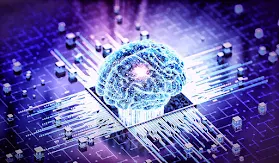What is AI?
Artificial Intelligence (AI) is a field in computer science focused on creating machines that can perform tasks usually done by humans. These tasks include learning from experience, solving problems, understanding language, and recognizing patterns.
Types of AI
1. Narrow AI: This type is designed to perform specific tasks. Examples include virtual assistants like Siri or Alexa, which handle voice commands and provide information. Narrow AI is also used in online recommendations and fraud detection.
2. General AI: This AI aims to have the ability to understand and learn any task a human can. It’s still mostly theoretical and researchers are working on making it a reality.
3. Superintelligent AI: This is a theoretical form of AI that would be much smarter than the best human minds. It’s a topic of debate and concern due to its potential risks.
Key Parts of AI
1. Machine Learning (ML): This is a type of AI that allows systems to learn from data and improve over time without being programmed for each task. For example, ML helps recommend movies on streaming services based on what you’ve watched before.
2. Natural Language Processing (NLP): NLP helps machines understand and generate human language. It’s used in chatbots, translation services, and voice recognition.
3. Computer Vision: This helps machines interpret and understand visual information from the world, like recognizing faces in photos or identifying objects in videos.
4. Robotics: This combines AI with robots to perform physical tasks. Examples include robotic arms in factories and drones used for delivery.
Uses of AI
AI is used in many areas, including:
Healthcare: AI helps diagnose diseases, suggest treatments, and manage patient data. For example, it can analyze medical images to find problems.
Finance: AI helps detect fraud, manage trading, and offer customer support through chatbots.
Transportation: AI powers self-driving cars and helps with logistics and route planning.
Entertainment: AI recommends movies, shows, and music based on what you like.
Ethical Issues
As AI grows, there are important concerns:
Bias: AI can reflect the biases in the data it learns from, leading to unfair results.
Privacy: Using AI for surveillance and data collection raises privacy issues.
Jobs: Automation might replace some jobs, so it’s important to think about retraining workers for new roles.
Future of AI
AI has a lot of potential to change our world in exciting ways. However, it’s important to develop and use AI responsibly to address ethical issues and ensure everyone benefits from its advancements.
In short, AI is a powerful technology with many uses and possibilities. Understanding it helps us make better decisions about how to use it in our daily lives and future developments.





0 Comments